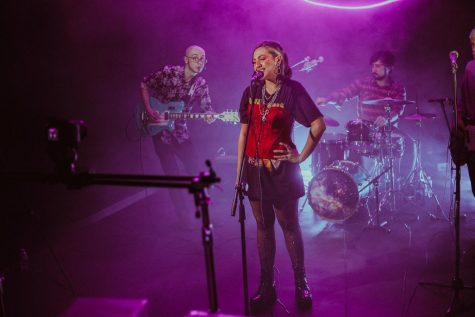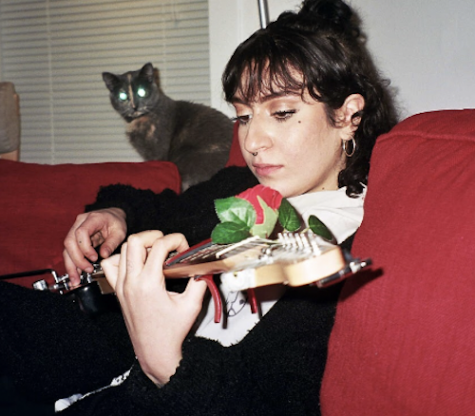Columbia alums create inclusive virtual concert series
September 1, 2020

For years, Anya Kohlman’s dream has been to promote lesser known artists in the music industry by organizing shows and connecting with performers.
Kohlman said because much of Chicago’s local talent is not connected to the “venue scene,” she wanted to help bridge the gap and give artists a platform to gain recognition.
The 2019 music business management alum said it is difficult to break into the music industry as a promoter due to a lack of accessible resources and financial backing. So, in June 2019, Kohlman started her own concert promotion company, Bottlenose Presents.
“This was my way of being able to put on shows even though I didn’t have very much money and I didn’t have very many resources behind me,” Kohlman said. “Bottlenose is bringing DIY [artists] into venues and giving them opportunities to perform where they wouldn’t normally be able to.”
As live, in-person music performances came to a standstill mid-March due to the coronavirus pandemic, Kohlman and 2020 music business management alum Rachel Vogrich, who is the chief of operations for Bottlenose, sprang into action.
The two used Bottlenose platforms to start a weekly virtual livestream series to help fill the void from a lack of shows and give artists a space to perform.
The virtual livestream concert series, called “Livestreams from Quarantine,” takes place every Friday night over Facebook Live and Zoom.
Vogrich said they connect with artists through Instagram direct message or email and invite them to a Zoom meeting to virtually perform from any location.
The shows are also completely free, which makes Bottlenose more accessible than other livestreaming platforms, Vogrich said.
One of the objectives of Bottlenose is to cover a number of different musical bases and branch into genres the promoters and audience may not be as familiar with, Kohlman said.
In addition to promoting various genres, Vogrich said she and Kohlman also make it a priority to include artists from different minority groups in their show lineups to combat a music scene that is “primarily dominated by white cis males.”

Sophomore graphic design major and singer-songwriter Chrissy Bahadri, also known as Rose Bud, said it is more difficult for minority artists to get booked for shows, and platforms such as Bottlenose are diversifying the field by promoting inclusivity.
“It’s so cool to have people who are constantly looking out for minority women, trans [and] queer artists and giving them a platform and giving them a chance to share their music,” Bahadri said. “It’s really, really difficult, especially in the Chicago DIY scene.”
Mila Diaz, a Chicago-based musician and 2020 music business management alum who performed a virtual set for Bottlenose on Aug. 14, said she wanted to perform because as a woman of color in the music industry, there is a “story to tell” through her music.
“It’s super important right now that we amplify voices of color,” said Diaz, also known as Mila La Morena. “We’re living in a revolutionary time right now; [it is] an awakening for young people.”
Kohlman said she also aims to foster connections between artists and music enthusiasts.
“We want it to be an interactive environment where people can comment live and the artist can see that and respond if they feel like it,” Kohlman said.
Senior acting major Jess Gomes, also known as Jess the Savior, played a hip-hop set for Bottlenose from her porch at her parents’ house in Boston.
Gomes said performing by herself virtually created a unique type of energy.
“It was hard because I couldn’t dance [and] I couldn’t jump,” Gomes said. “I couldn’t feel the energy of the audience, but those little hearts on the side that you can see and [the number] of viewers going up was really reassuring.”
Kohlman said platforms like Bottlenose can provide a sense of community not only within the DIY music scene but also among minority artists.
“I think it’s still really important for people to have some kind of community and have some kind of place where they feel like they belong,” Kohlman said. “Music is that escape for a lot of different people, so we’re trying to get as close to that as we can with these streams.”







